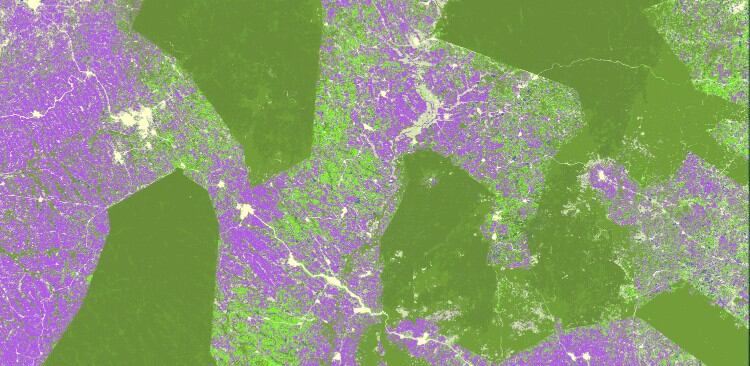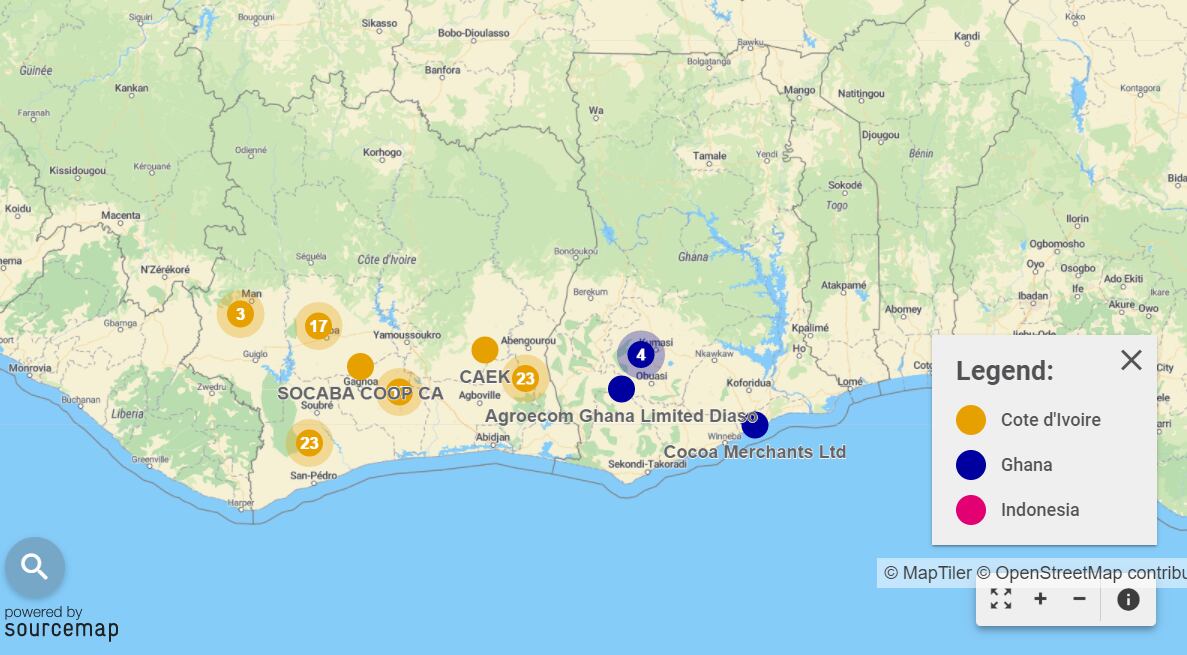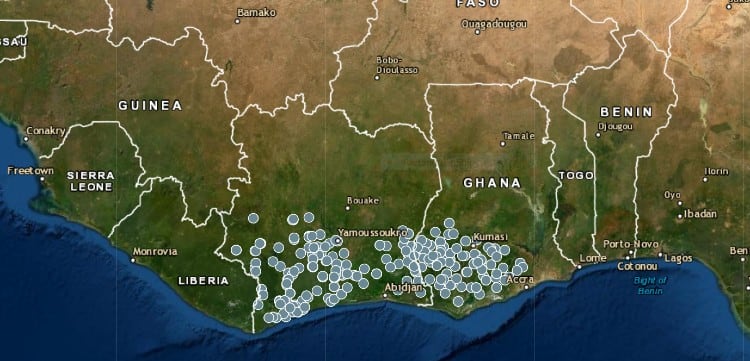The company has been involved monitoring supply chains in other commodities such as palm oil, coffee, rubber, soy, sugar … and has recently moved into cocoa, working with companies such as Olam Cocoa and Touton.
I spoke to founder and CEO Niels Wielaard from the company’s headquarters in The Netherlands via video and he explained to me the reasons why monitoring cocoa trees is trickier than palm oil, for example, but how Satelligence is working with its partners to produce more accurate data to help them make informed choices in a real-time scenario.
With companies including Mars and Barry Callebaut publicly sharing their own maps with geographical data on its direct suppliers to show transparency and traceability in their cocoa supply chain, the robustness of data is crucial if the cocoa industry is to meet its targets of ending deforestation in the near future.
Niels said at present one of the main areas of concern, from a technology viewpoint, regarding deforestation in the cocoa supply chain is how the tech is being used.
“The technology is good, but it is not being applied on the level that it should. For example in the most widely used information by NGOs, only 6% of deforestation in cloudy areas like Ghana is detected on a real-time basis, if we add radar that can see through clouds that is hampering observation we can vastly improve the timeliness of the detection, and in terms of biggest risk areas we have only started to look at the problem,” he says.

The analysis of drivers of deforestation is also important and is one of the core elements of Satelligence’s technology.
In certain areas in West Africa cocoa may not be the culprit behind deforestation, it could come from mining or cultivation of other commodities. Niels says that his company’s data is able to detect each source and pass on the information to its clients.
Farmer poverty
He recognizes that farmer poverty and living income in countries like Ghana also has an impact on the environment.
“Of course, the livelihoods of people are very important, but if there’s a lot of influx of people into the area it’s important we keep an eye on what happens to the forest in the meantime, it will be important for sustainability in the coming years,” he says.
Having worked extensively in the palm oil sector, Niels also says that cocoa still has a lot to learn from that industry and better co-ordination between stakeholders is still an issue.
“In the palm oil sector, larger supplier organisations are increasingly working together with local government to coordinate risk identification and then follow up with action on the ground, for example,” he says.
- Check-out the full interview with Niels Wielaard and Satelligence’s work in the above video.


